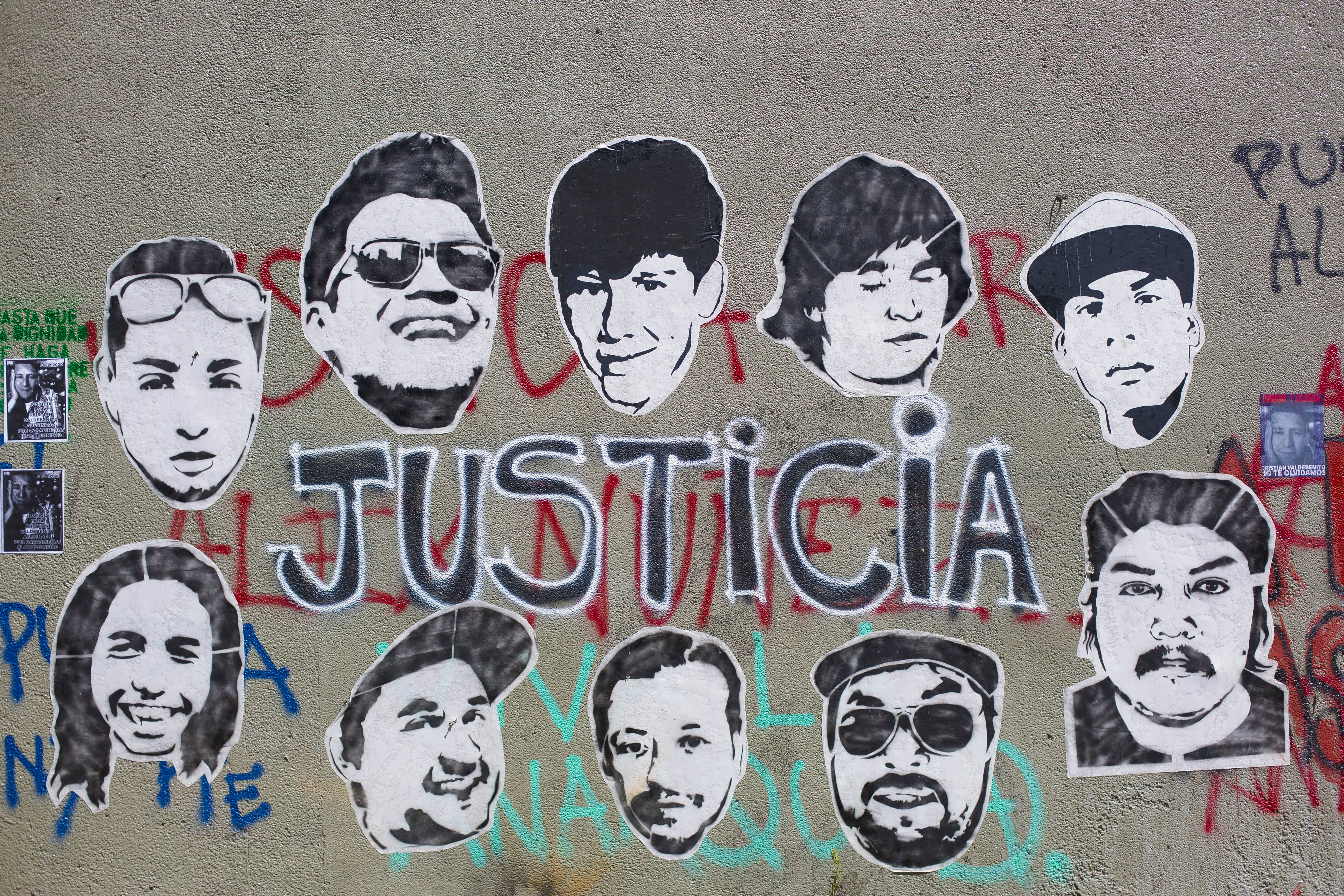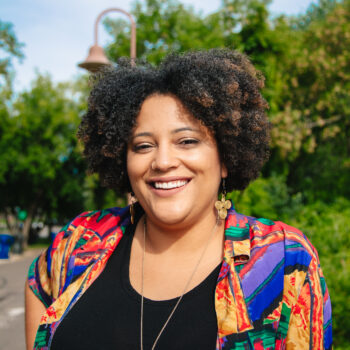Mery Cortez’s son, Romario Veloz, was murdered by the Chilean military in the social uprising of 2019. Since her son’s murder, Cortez — who is Afro-Ecuadorian — has led a tireless campaign to get justice for her son and to bring awareness to the Black struggle in Chile. She talked with Black Visions co-director Kandace Montgomery — one of the leaders of the rebellion for Black lives in the summer of 2020 — about her loss, what gives her the strength to fight for justice, and her hopes for Black people across the Americas. Their conversation has been edited and condensed.
Tell us about your son, Romario Veloz.
Romario Veloz was an Afro-Ecuadorian youth, a resident of Chile for 17 years. He was studying civil engineering, a working young man; he was a hip hop artist, an emcee who loved freestyling. On October 20th, 2019, he went out to protest for his rights and those of his daughter, and he was cruelly taken out by a bullet from the military. Romario was brilliant and full of life, with the whole world ahead of him. Sadly, they ended his dreams, they took away the opportunity to see his dreams come true, to see his daughter grow up.

Where do you find the strength to do this work?
I get the strength from my beloved son, from being a woman who struggles, a warrior woman, but always, always with the angel of my son leading the way.
What does it mean to be both Black and a woman in this work?
It’s very hard to be a Black woman in the activist world; it’s difficult and complicated. It means fighting against racism and discrimination.
What do we, as Black women, need from our comrades?
We need to gain empowerment, to go out and fight for our rights, for us to gain unity. We need to all row the boat in the same direction so that our rights are recognized.
What part of our story needs to be told more?
I think that the conditions in which we were trapped, in which we were transported, how we were enslaved, how our rights were not respected. They forced us into labor, they left us impoverished, they took away our opportunity to live in basic, humane conditions. They stole a huge part of our history and our dreams.
What is your hope for Black people in the Americas?
As a Black woman, the only thing I would like to do is to live with flavor. That basically means means to live with humanity. People need ubuntu. Ubuntu is an African philosophy that can be translated as, “ I am because we are.” It’s a term meaning “humanity.” Only then can we have a world that is more generous, that is equal, that is more inclusive. Then we would be like I say — living with flavor! I have hope though. I hope we can raise the levels of representation of Black people in decision-making positions, both in the public and private sector. It’s really true that the levels of poverty affect Black people in a disproportionate manner. The hope amidst all of this is that one day we can have actual power, from purchasing power to political power. We need Black women in Congress, we need Black people in government. But for that we first need Black unity.
What do you see as things Black women in the US and Chile have in common? What differences do you see?
I met the mother of Sean Bell, the sister of Shantelle Davis, the aunt of George Floyd. I met other Black women who had lost their family members because of state violence against Black people. I learned I wasn’t alone in my pain. What stood out to me though were some important differences. In my opinion, the Black community in the United States is way more organized than the Black community in Chile. There is a history of struggle. We are a new population in Chile and have ways to go to become a force. I also saw that in the United States there is actual funding that supports the activism of Black women and Black people.This allows them to keep doing the important social justice work. We don’t have that in Chile. Here, compared to the USA, it feels as if Black Lives Don’t Matter. Lately, I’ve been thinking about how much of a physical and emotional investment it is to struggle against racism and discrimination. There’s so much mental labor demanded by activism. This shows me how much we have to struggle to resist.

